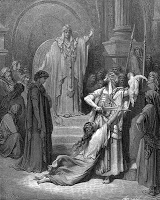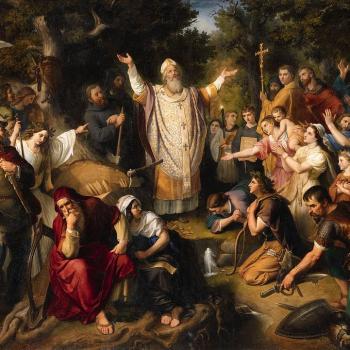The Bible is a book that is filled with many kinds of literature. There are poems, philosophical works, stories of people, songs, visions, and many other genres. Amidst the cornucopia of scriptural records are many accounts that seek to inform people about events of the past. These books are often called the “historical books.” Although these books have historically been authorities in understanding what has happened in the past, that assumption has been seriously challenged in the last 400 years by many scholars in the field of historiography.
What is historiography?
Historiography is in broad terms is the scholastic discipline of history. It is concerned with how we go about discovering what has happened. Historiography has gone through many changes over the years. In its “modern” form the discipline bloomed out of a shift from an emphasis on philosophy as the primary methodology at determining truth to a dependence on the scientific method. The authority on truth in this paradigm is “positivistic” observable evidence. In its quest to find reliable sources on information about the past it moved away from the biblical accounts and sought to determine their authenticity through more “reliable” sources such as archeology.
In the 20th century there was a realization among many scholars that the quest to find an objective source of validation or refutation of the Bible had failed. Those who had sought to find solid ground to stand on had failed to find evidence that either proved or disproved the Bible. Discussions on the objective history of the Bible deteriorated into fights over the ideologies which informed the unnamed assumptions of the scholars. It became more and more clear that objectivity was impossible, and soon scholars were describing the field of Biblical history as “dead.”
As a response there have been three parties formed.
First there are those who ignore the failure of the discipline and continue to seek unobtainable objectivity. They maintain a belief that logical-positivism can glen historical truth. These are the modernist.
Second there is post-modernist party which affirms that scientific history is impossible. The reject objectivity and embrace subjectivity. It emphasizes the realm of internal construction of reality. True reality, if it exists at all, is external to individuals, and have given up on any attempt at discovering it.
Thirdly there is a party which affirms that, although history is always viewed through an objective lens, there is a reality out there. They believe that that reality is something that is worth seeking after. Instead of seeking pure objectivity or receding into subjectivity they believe that having an honest declarations about what pre-scientific assumptions and truth claims are impacting the conversation can yield better results at communicating the realties of the past to the present. This is the path that Iain provan V. Phillips Long and Tremper Longman III imploy in their 2003 book “A Biblical history of Israel.”
So do you think studding the history of the Bible is a dead discipline, or do you think there is a way forward with radical integrity?













